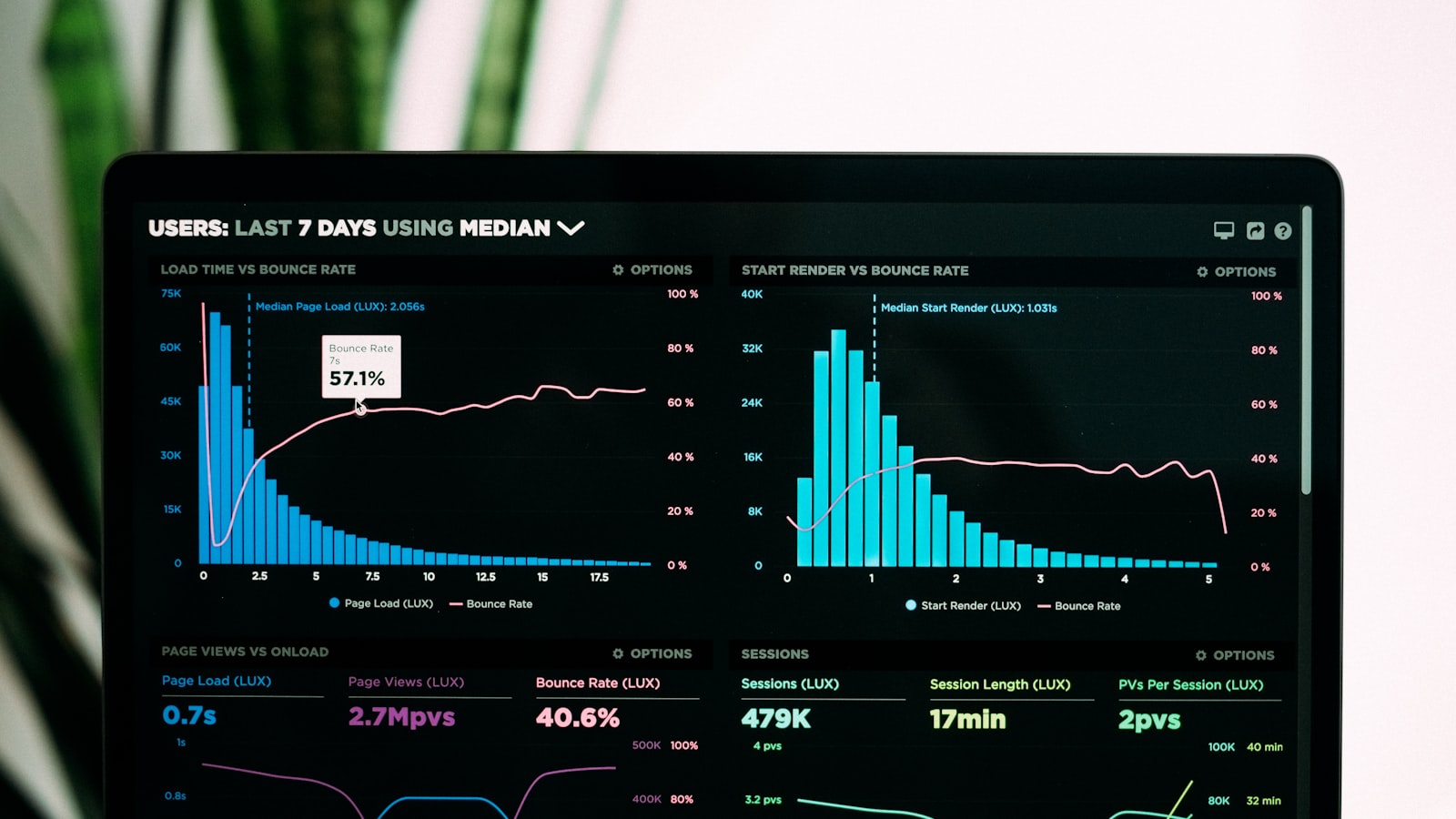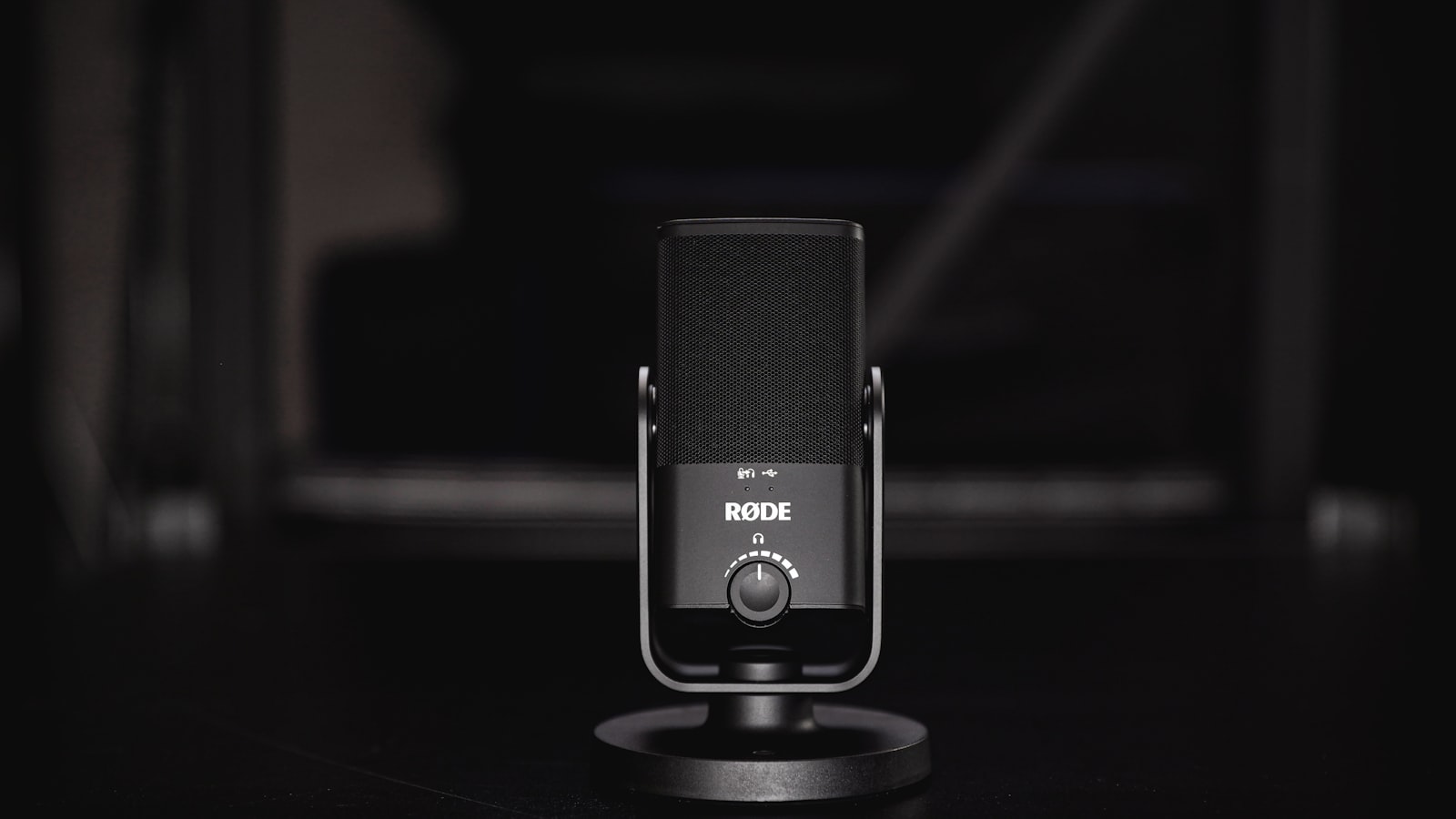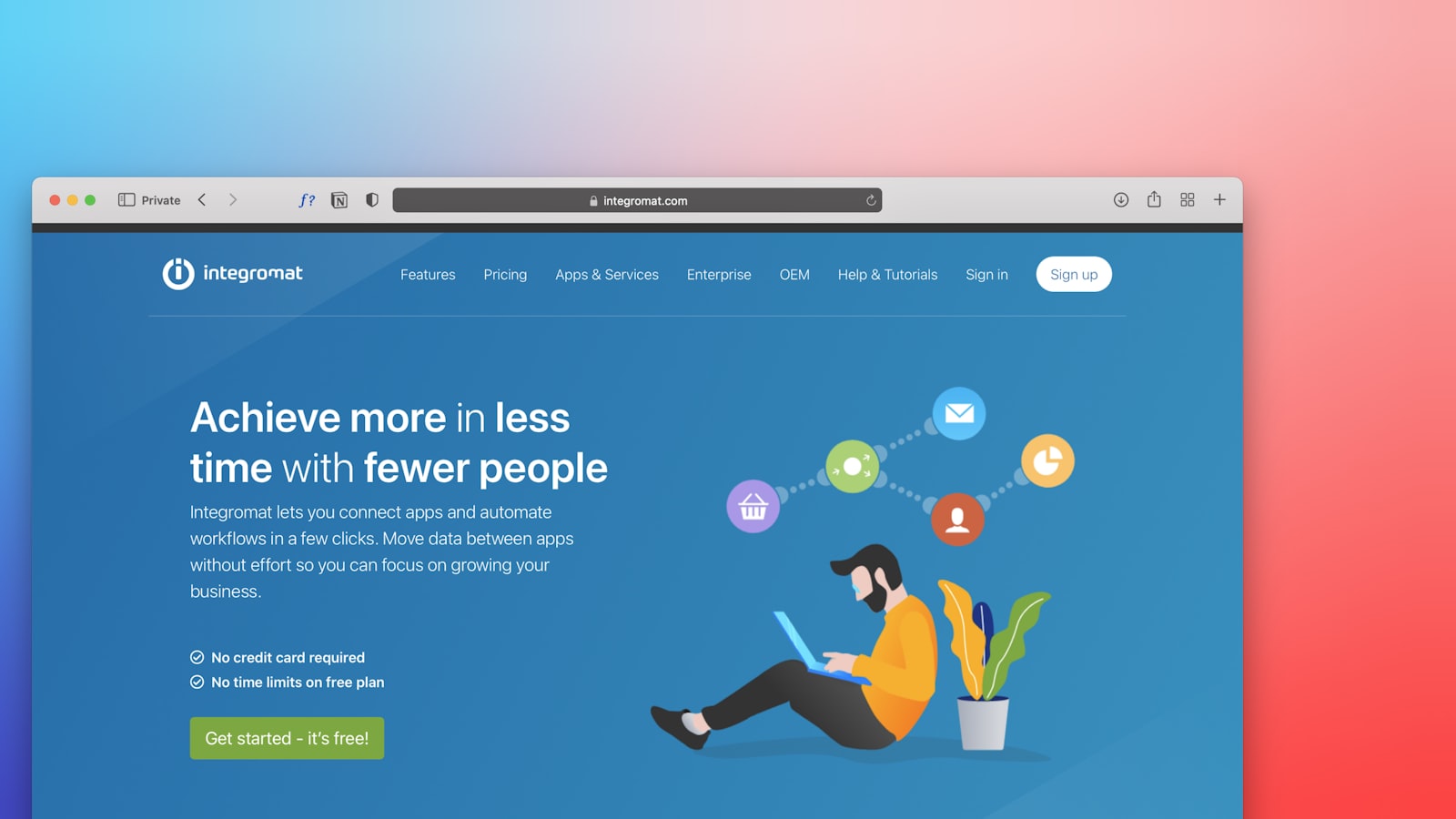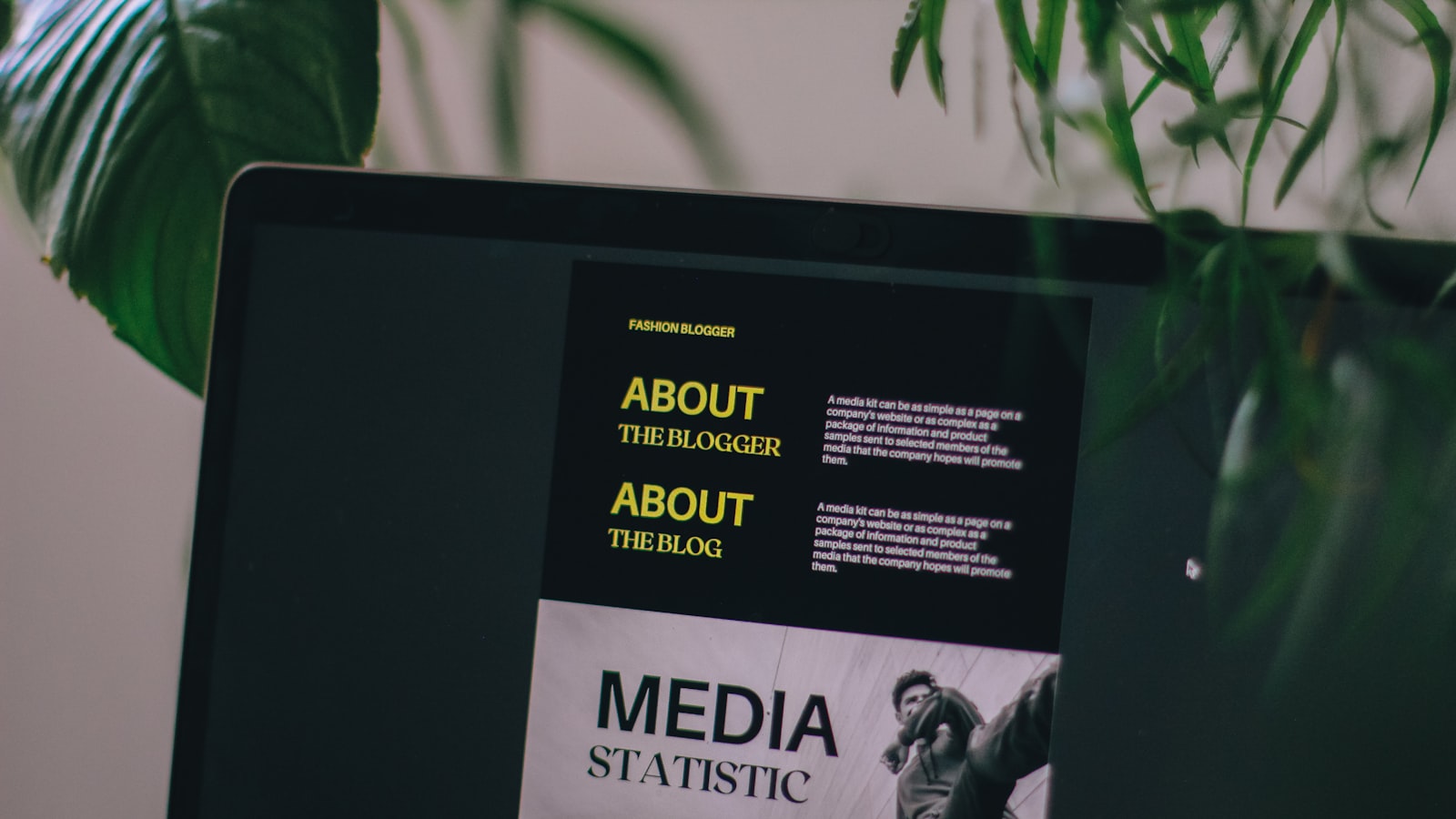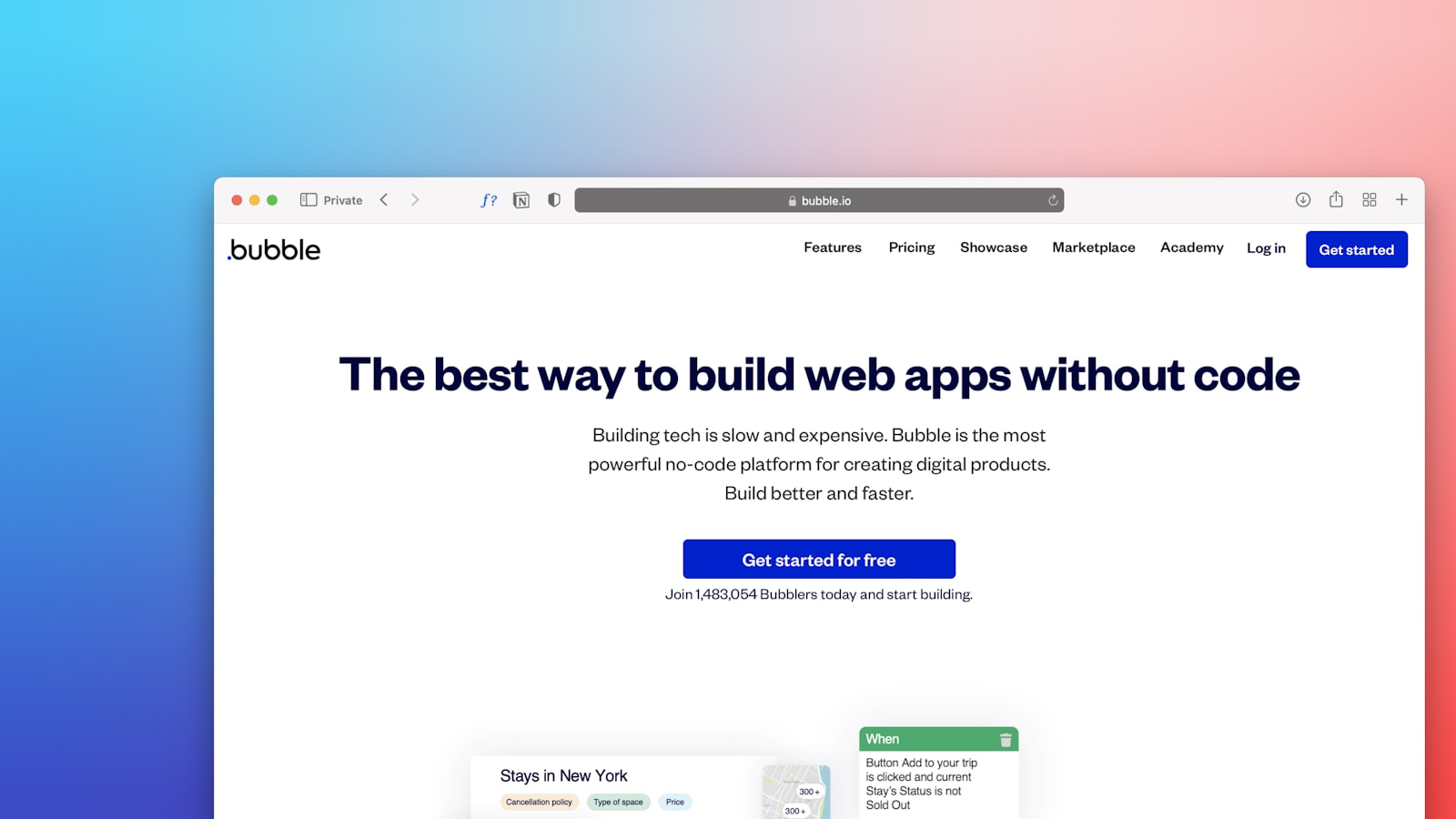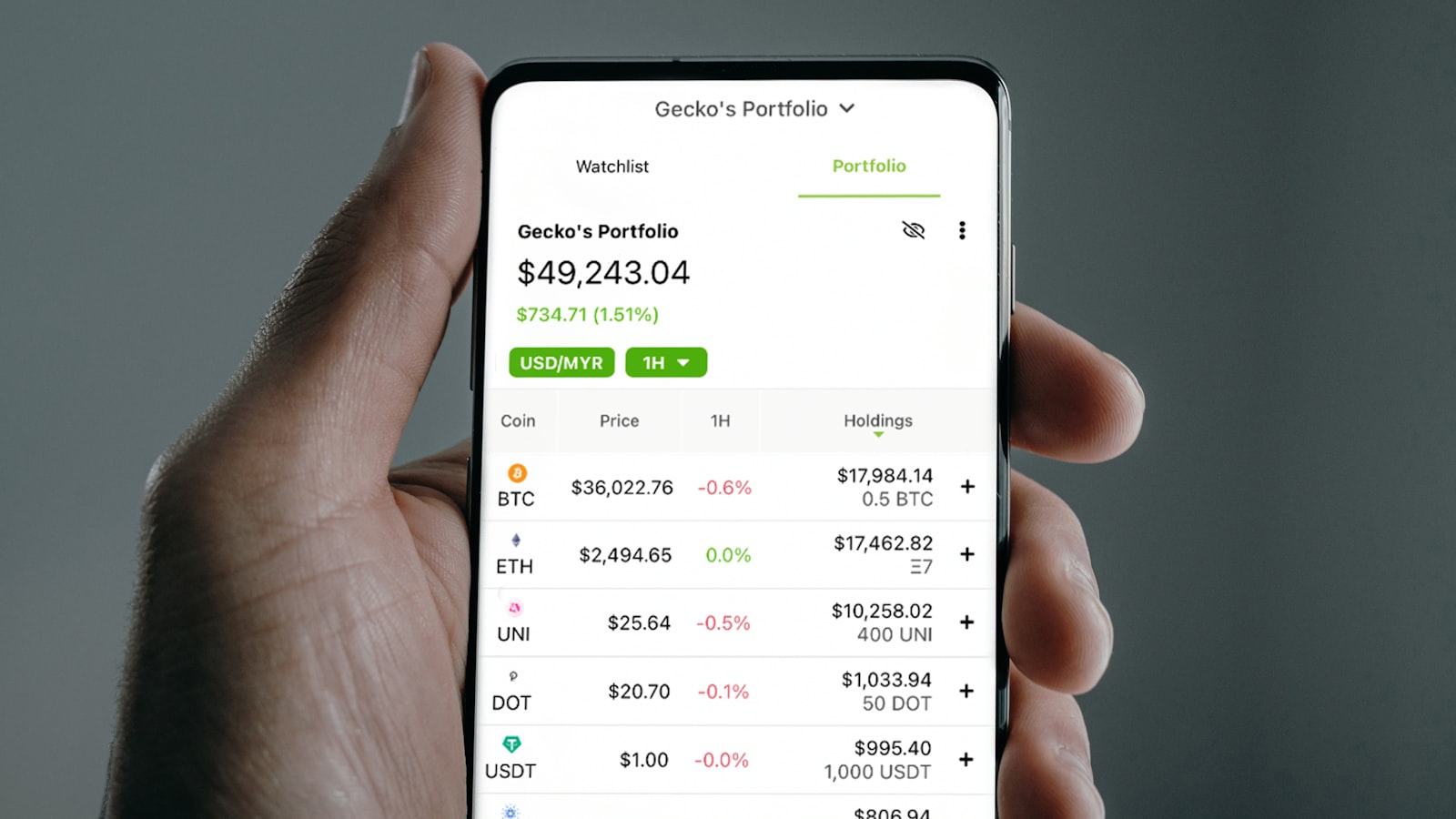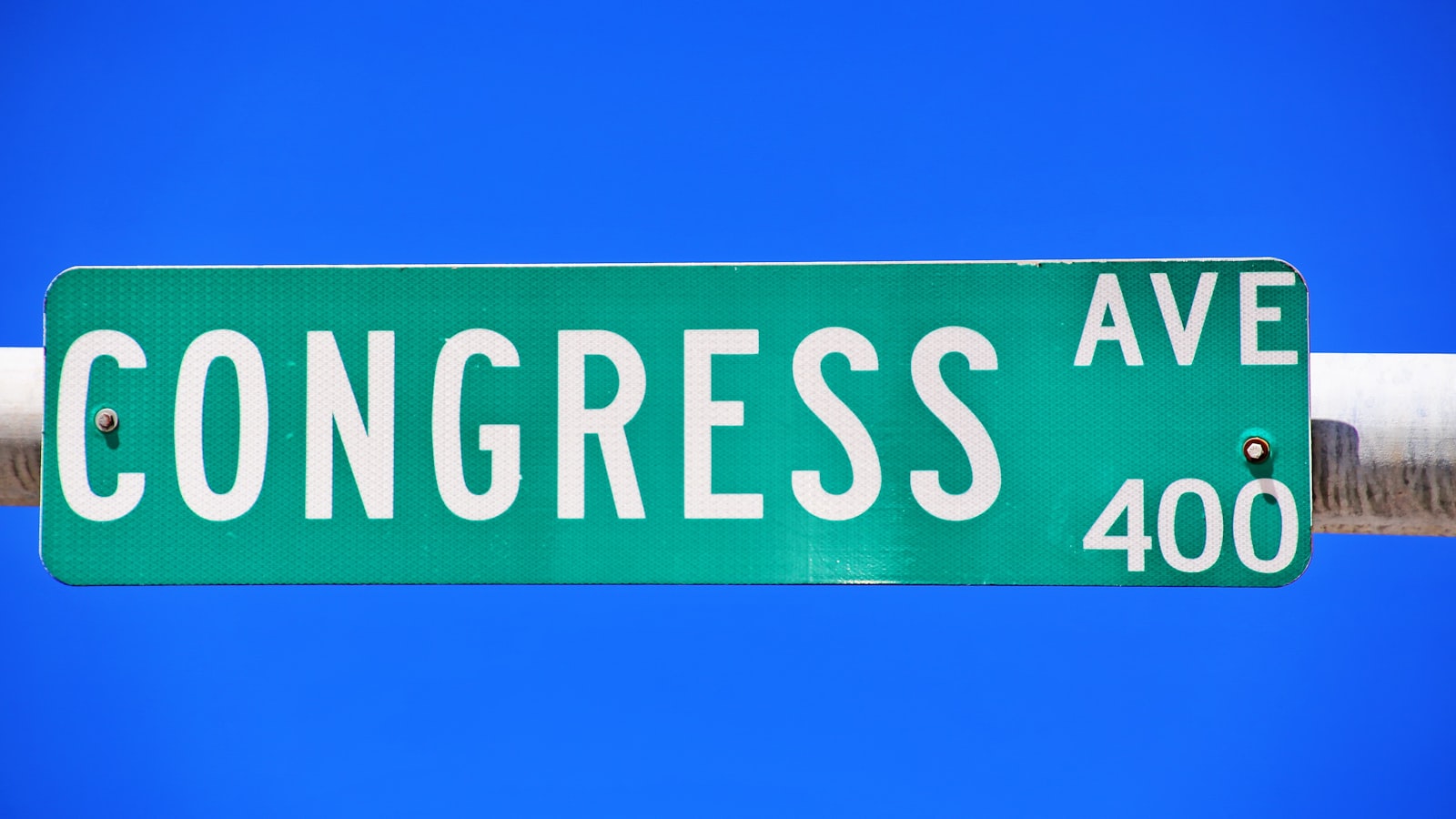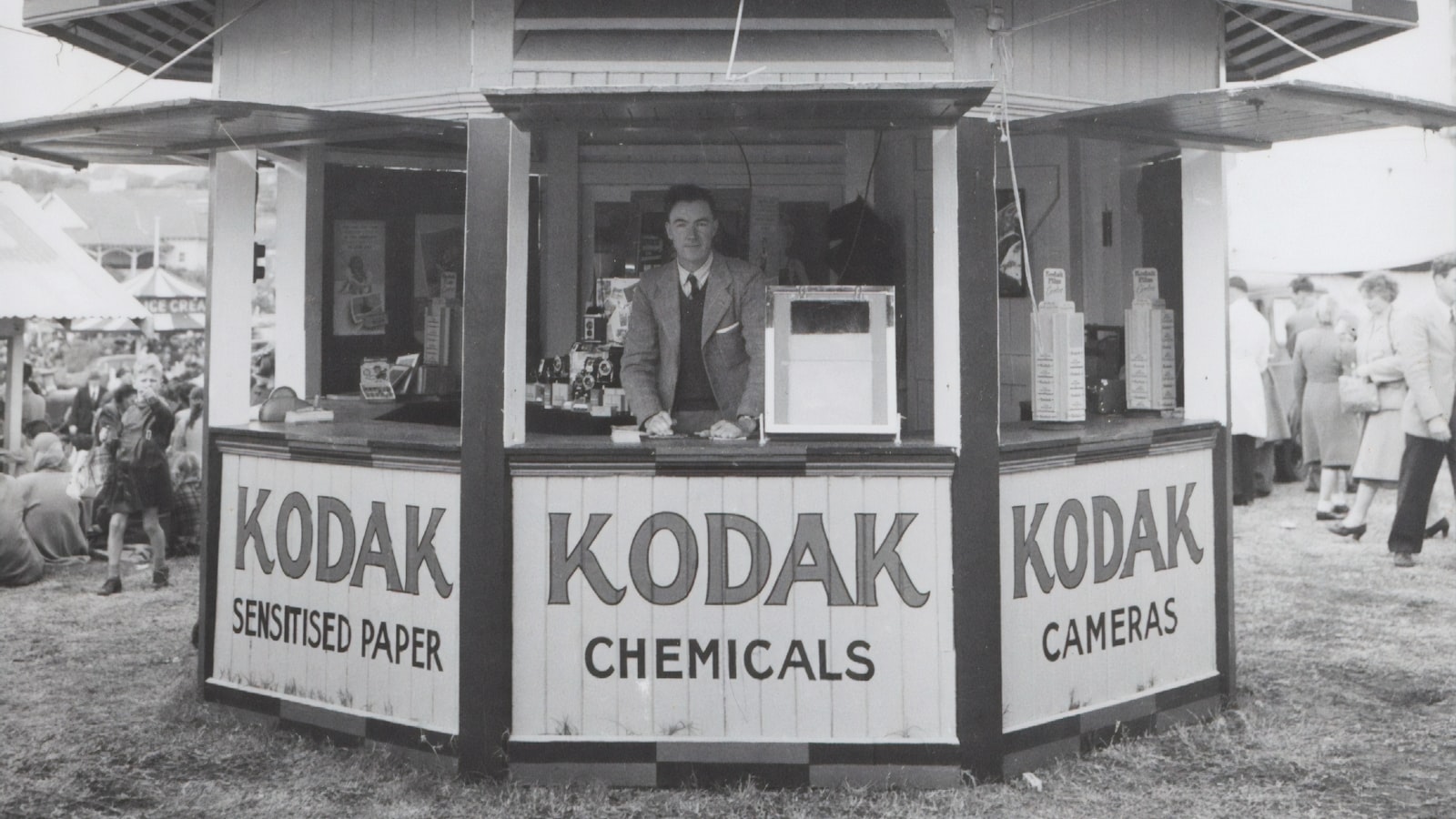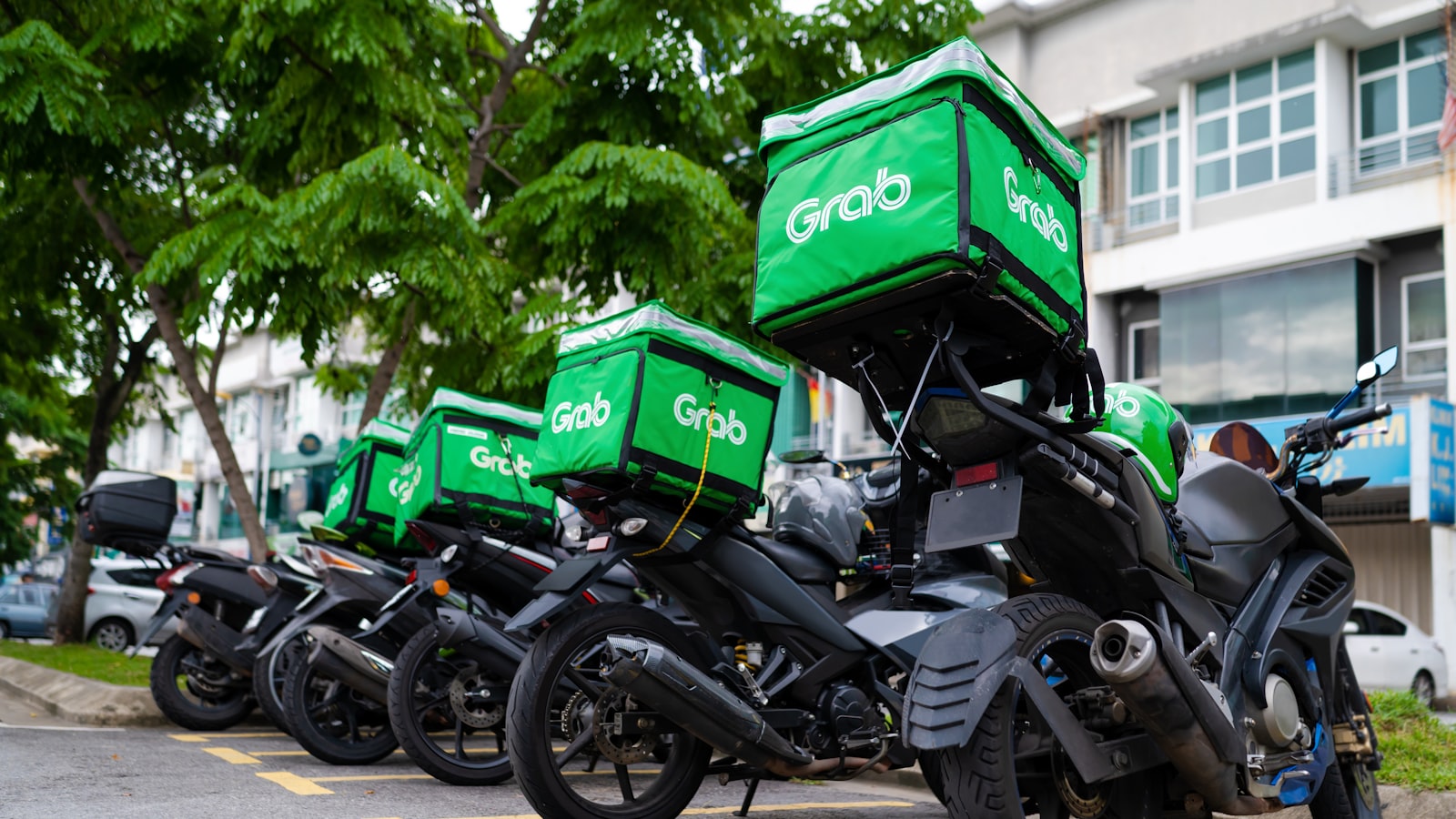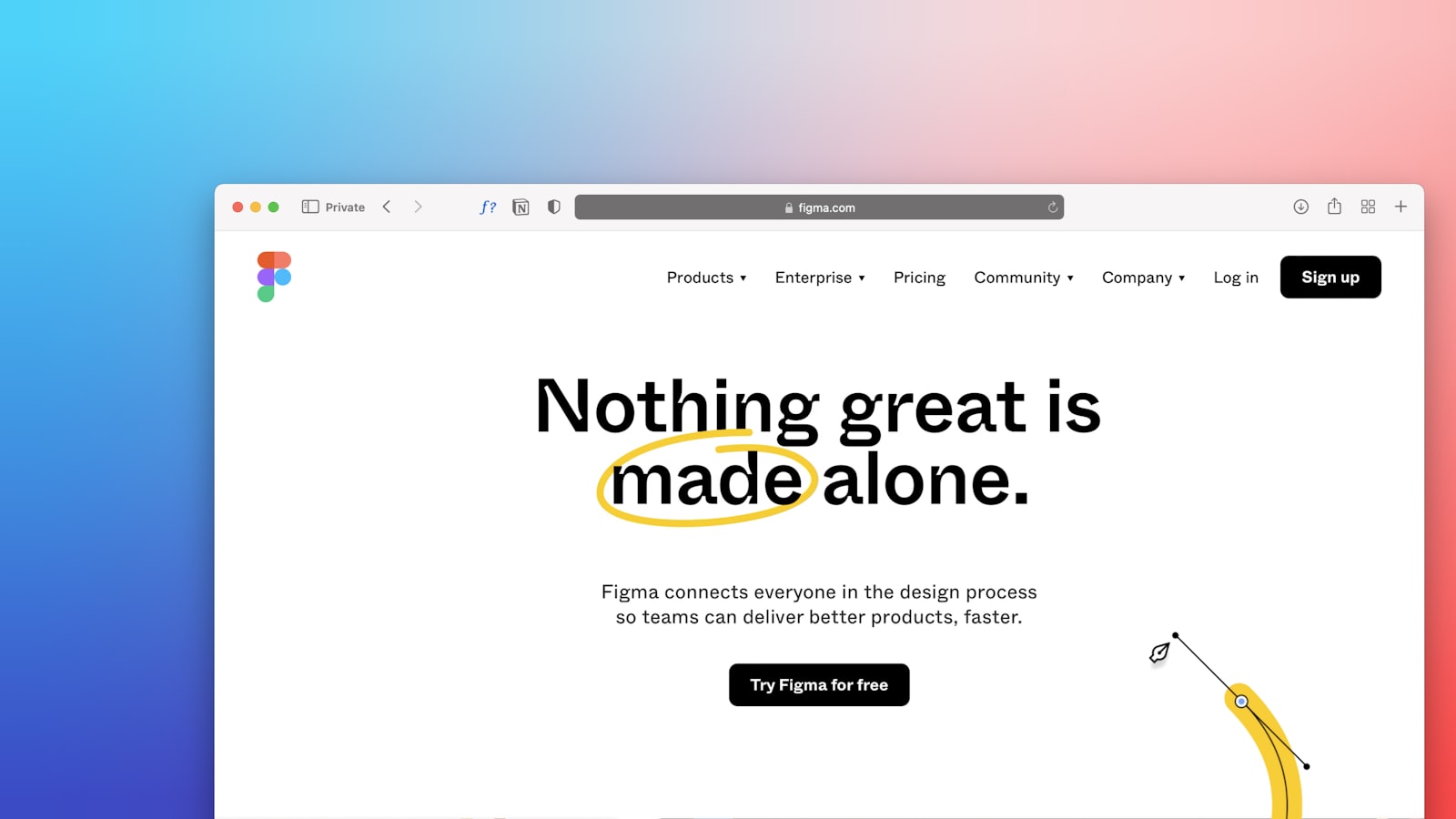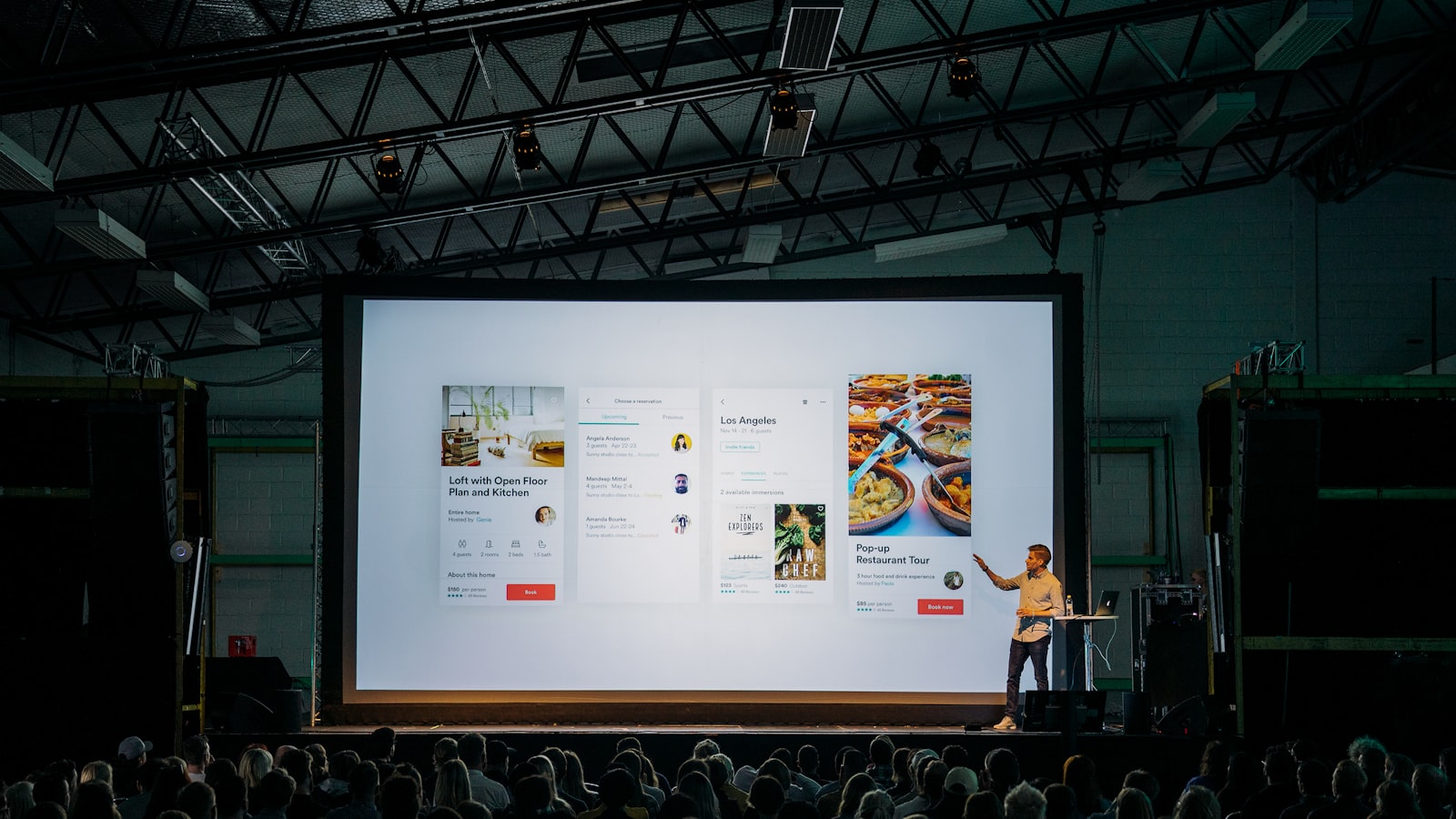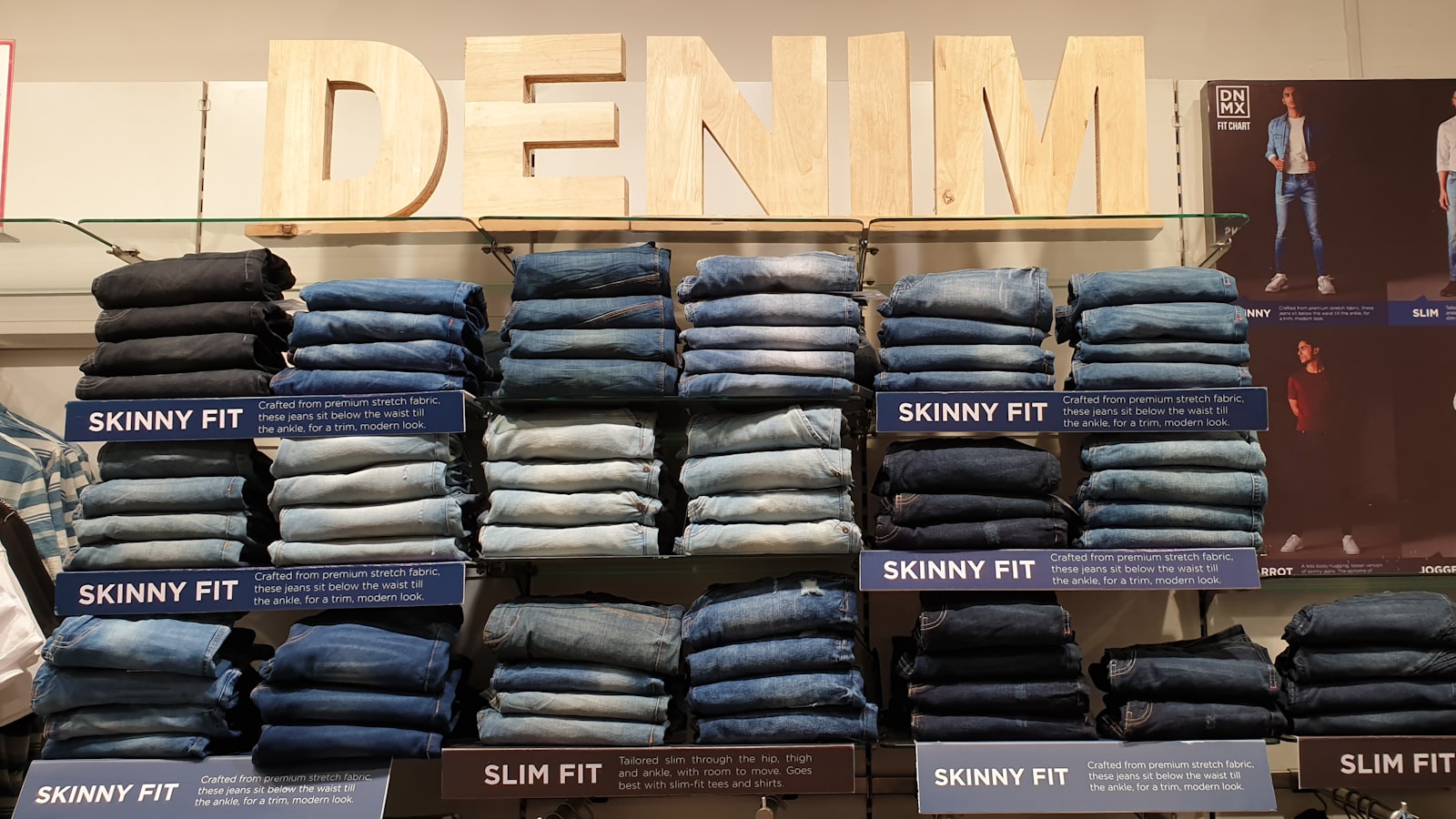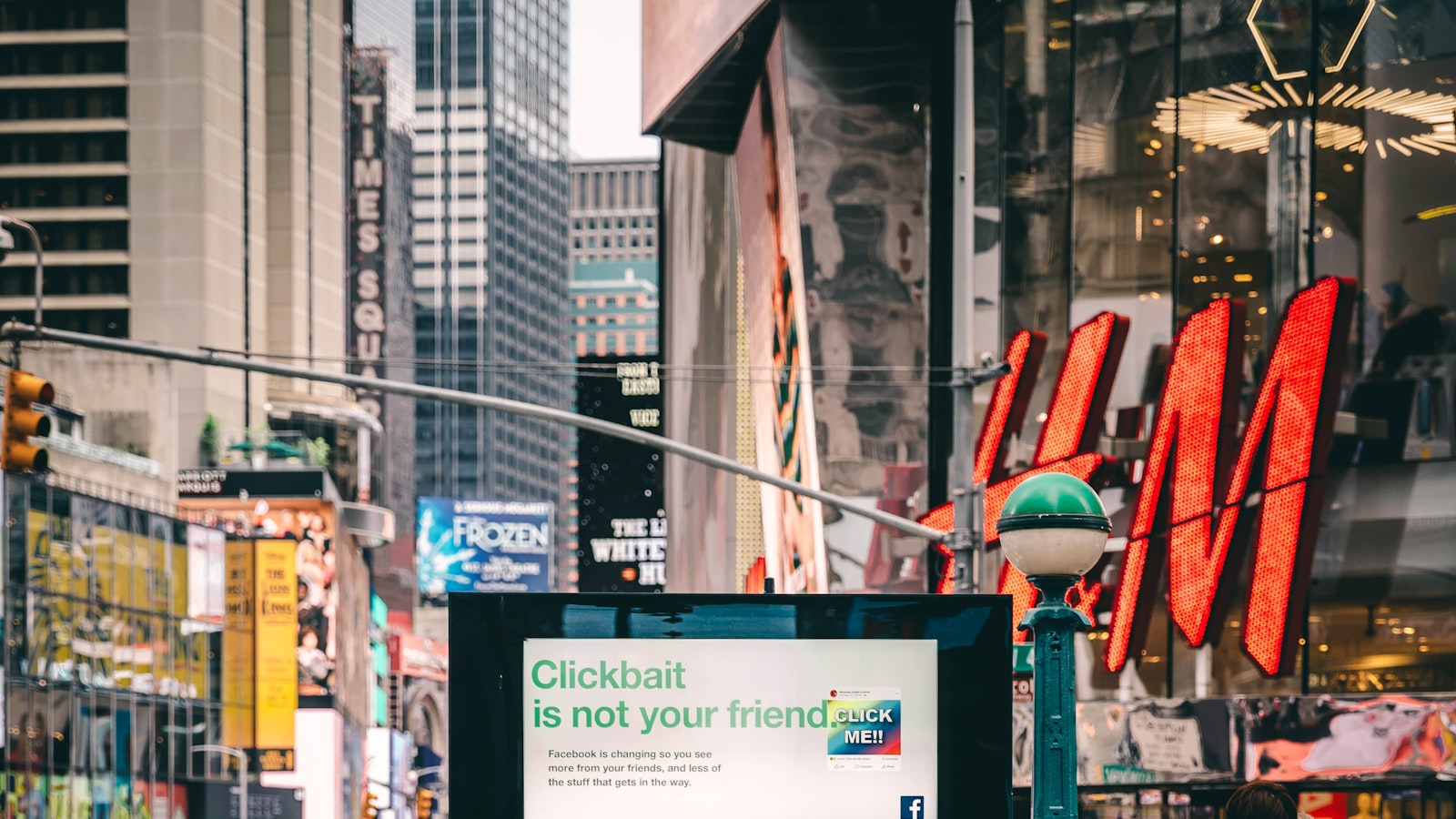The Pros and Cons of Bidding on Competitor Brand Terms in PPC
The Pros and Cons of Bidding on Competitor Brand Terms in PPC
The Pros and Cons of Bidding on Competitor Brand Terms in PPC
Discover the pros and cons of bidding on competitor brand terms in PPC campaigns. Learn how to strategically bid on brand names for optimal results.
Discover the pros and cons of bidding on competitor brand terms in PPC campaigns. Learn how to strategically bid on brand names for optimal results.



Introduction
Ever wondered if bidding on your competitor's brand terms in PPC is a genius move or a risky gamble? You're not alone. This strategy can either catapult your campaign to new heights or drain your budget faster than you can say click-through rate. So, let's cut to the chase and break down the pros and cons of this daring tactic.
Why Bother with PPC and Competitor Brand Bidding?
Pay-Per-Click (PPC) advertising is like the Swiss Army knife of digital marketing—versatile, powerful, and sometimes a bit tricky to master. One particularly bold move in the PPC playbook is to bid on brand terms of your competitors. It’s like setting up shop right next to your biggest rival and trying to lure their customers over to your side. But before you dive into this high-stakes game, you need to weigh the benefits against the potential pitfalls.
The Stakes Are High: Pros and Cons
Understanding the pros and cons of bidding on competitor brand terms is crucial. Do it right, and you could see a surge in traffic and conversions. Mess it up, and you might just be throwing money into a black hole. Here's a sneak peek of what we'll cover:
Pros: Increased visibility, potential to capture competitor's traffic, and strategic advantages.
Cons: High costs, potential legal issues, and the risk of starting a bidding war.
Ready to become a PPC maestro? Let's dive into the nitty-gritty and see if this strategy is your ticket to digital marketing glory or just another cautionary tale.
What is Competitor Brand Bidding?
Definition and Explanation of Competitor Brand Bidding
Competitor brand bidding is a PPC strategy where you bid on keywords that include your competitors' brand names. Essentially, when users search for a competitor's brand, your ads appear alongside or above the competitor's organic listings. This tactic aims to capture the attention of potential customers who are already considering products or services similar to yours.
Differences Between Branded and Non-Branded Keywords
Understanding the distinction between branded and non-branded keywords is crucial for any PPC campaign:
Branded Keywords: These are keywords that include a specific brand name, such as Nike running shoes. They typically have higher conversion rates because the searcher is already familiar with the brand.
Non-Branded Keywords: These are more generic terms like running shoes. They generally have higher search volumes but lower conversion rates compared to branded keywords.
Bidding on branded keywords, whether your own or a competitor's, can be more cost-effective and yield higher engagement rates.
Examples of Competitor Brand Bidding in Action
Let's look at some real-world examples to illustrate how competitor brand bidding works:
Example 1: Imagine you run a SaaS company offering project management tools. You might bid on keywords like Asana alternatives or Trello competitors to attract users looking for other options.
Example 2: An e-commerce store selling athletic wear might bid on Adidas sneakers to capture traffic from users interested in similar products.
Example 3: A local coffee shop could bid on Starbucks near me to attract customers searching for coffee shops in the area.
These examples show how businesses can strategically position themselves to intercept competitor traffic and potentially convert those users into their own customers.

For more on competitive PPC tactics, check out our guide on 10 Competitive PPC Tactics to Stay Ahead of the Game.
The Benefits of Bidding on Competitor Brand Terms
Lower Cost Per Click (CPC)
Bidding on competitor brand terms can often result in a lower Cost Per Click (CPC). This is because the competition for these keywords is usually less intense compared to non-branded keywords. When fewer advertisers are bidding on the same terms, the auction dynamics favor lower bids, making it a cost-effective strategy.
Explanation of lower competition and cheaper bids
Non-branded keywords tend to attract a wide range of advertisers, driving up the bids and the overall CPC. In contrast, competitor brand terms typically have fewer bidders, resulting in cheaper bids. This can be particularly beneficial for businesses looking to maximize their PPC budget.
Comparison with non-branded keywords
While non-branded keywords are essential for reaching a broad audience, they often come with a higher price tag. Competitor brand terms, on the other hand, allow you to target a more specific audience at a lower cost. This targeted approach can lead to better ROI and more efficient use of your advertising budget.
Increased Brand Awareness
Appearing in searches for competitor brand terms can significantly boost your brand's visibility. When potential customers search for your competitors, seeing your ads can make them aware of your brand as an alternative.
How appearing in competitor searches can increase visibility
By showing up in searches for competitor brands, you can introduce your brand to users who may not have been familiar with it before. This increased exposure can lead to higher brand recognition and recall, which is invaluable for long-term growth.
Capturing Competitor’s Customers
One of the main advantages of bidding on competitor brand terms is the potential to convert their customers. By presenting a compelling offer or unique selling proposition (USP), you can entice users to consider your product or service instead.
Strategies for converting competitor’s customers
Highlighting USPs: Emphasize what makes your product or service better or different from the competitor.
Special Offers: Use promotions or discounts to attract competitor’s customers.
Customer Reviews: Showcase positive reviews and testimonials to build trust.
Importance of unique selling propositions (USPs) in ad copy
Your ad copy should clearly communicate your unique selling propositions. This not only differentiates you from the competitor but also gives potential customers a reason to click on your ad and explore your offerings.
Dominating the SERP
By bidding on competitor brand terms, you can occupy more real estate on the Search Engine Results Page (SERP). This can lead to higher click-through rates (CTR) and impressions, making your brand more visible and accessible.
Benefits of occupying more SERP real estate
When your ads appear alongside organic search results, it increases the likelihood of clicks. This dual presence can enhance your brand's authority and trustworthiness in the eyes of potential customers.
The impact on click-through rates (CTR) and impressions
Higher visibility on the SERP often translates to improved CTR and more impressions. This increased engagement can drive more traffic to your website and potentially lead to higher conversions.
Targeting High-Intent Audiences
Searches for competitor brand terms are often high-intent, meaning the users are actively looking for a specific product or service. This makes them more likely to convert compared to general searchers.
Explanation of high-intent searches and their value
High-intent searches indicate that the user is further along in the buying journey. They have a clear idea of what they want and are closer to making a purchase decision. Targeting these searches can result in higher conversion rates and better ROI.
How to leverage custom intent and remarketing audiences
Custom Intent Audiences: Create audiences based on users' search behavior and interests to target high-intent users.
Remarketing: Use remarketing strategies to re-engage users who have previously interacted with your brand or visited your website.

For more insights on competitive PPC tactics, check out our 10 Competitive PPC Tactics to Stay Ahead of the Game and 10 Competitive SEM Tactics to Stay Ahead of the Game.
The Risks and Challenges of Bidding on Competitor Brand Terms
Trademark Infringement
Bidding on competitor brand terms can sometimes lead to trademark infringement issues. This happens when you use a competitor's brand name in your ad copy without permission. Not only can this result in legal trouble, but it can also damage your brand's reputation.
Legal Considerations and Guidelines
Before diving into competitor brand bidding, it's crucial to understand the legal landscape. Google allows bidding on competitor keywords, but using their brand names in your ad copy is a no-go unless you have explicit permission. Always consult with your legal team to ensure your campaigns are compliant.
How to Avoid Trademark Violations in Ad Copy
**Use Generic Terms**: Instead of using competitor names, focus on generic product or service descriptions.
**Highlight Your USPs**: Emphasize your unique selling propositions without mentioning competitors.
**Consult Legal Experts**: Regularly review your ad copy with legal professionals to avoid any potential violations.
Bidding Retaliation
When you bid on competitor brand terms, there's a risk that your competitors will retaliate by bidding on your brand terms. This can lead to a bidding war, driving up costs for both parties.
Risks of Competitors Bidding on Your Brand Terms in Response
Retaliation can significantly increase your cost-per-click (CPC) and reduce your ad's effectiveness. It can also lead to a vicious cycle of increasing bids, ultimately straining your PPC budget.
Strategies to Mitigate Retaliation
**Monitor Competitor Activity**: Keep an eye on your competitors' bidding strategies and adjust your bids accordingly.
**Focus on Quality**: Improve your ad quality and relevance to maintain a high-quality score, which can help lower your CPC.
**Build Strong Organic Presence**: Invest in SEO to reduce reliance on paid ads and defend your brand terms organically.
High Costs per Conversion
Bidding on competitor brand terms often results in lower quality scores due to lower relevance. This can lead to higher costs per conversion, impacting your overall PPC budget and performance.
Explanation of Lower Quality Scores and Higher Costs
Quality scores are determined by ad relevance, expected click-through rate (CTR), and landing page experience. Competitor brand terms typically have lower relevance, resulting in lower quality scores and higher CPCs.
Impact on Overall PPC Budget and Performance
Higher CPCs and lower conversion rates can quickly drain your PPC budget. This can negatively affect your overall campaign performance, making it essential to carefully weigh the costs and benefits of this strategy.
Low Click-Through Rates (CTR)
Ads targeting competitor brand terms often suffer from low CTRs. Users searching for a specific brand may not be interested in clicking on ads for other brands, leading to poor performance.
Reasons for Low CTR on Competitor Brand Terms
**Brand Loyalty**: Users searching for a specific brand are often loyal customers, making them less likely to click on competitor ads.
**Relevance**: Competitor ads may not be as relevant to the user's search intent, resulting in lower CTRs.
How Low CTR Affects Quality Scores and Ad Costs
Low CTRs can lead to lower quality scores, which in turn increases your CPC. This creates a cycle where poor performance leads to higher costs, making it challenging to justify the investment in competitor brand bidding.
For more strategies on improving your PPC campaigns, check out our article on competitive PPC tactics.

Best Practices for Bidding on Competitor Brand Terms
Emphasize Your Value Proposition
When bidding on competitor brand terms, it's crucial to highlight what makes your brand unique. Your value proposition should be clear and compelling, making it easy for potential customers to see why they should choose you over the competition.
Crafting Compelling Ad Copy Without Using Competitor Names
Creating ad copy that stands out without directly mentioning your competitors can be challenging but rewarding. Focus on your strengths and benefits. For example:
Highlight Customer Benefits: Get faster results with our service.
Use Strong Call-to-Actions: Try us today and see the difference.
Highlighting Unique Features and Benefits
Make sure your ad copy emphasizes the unique features and benefits of your product or service. This could be anything from superior customer service to innovative features that your competitors lack. For example:
Our software integrates seamlessly with your existing tools.
Enjoy 24/7 customer support with our dedicated team.
Create Comparative Landing Pages
Importance of Dedicated Landing Pages for Competitor Terms
When users click on your ad, they should be taken to a landing page specifically designed to compare your product with the competitor's. This helps in converting the traffic by clearly showing the advantages of your offering.
Examples of Effective Comparative Landing Pages
Effective comparative landing pages often include:
Side-by-Side Comparisons: Highlighting features and benefits directly against competitors.
Customer Testimonials: Real-world examples of customers who switched from the competitor to your brand.
Constantly Test and Optimize Keywords
Regularly Updating and Optimizing Ad Campaigns
To stay ahead, it's essential to regularly update and optimize your ad campaigns. This involves:
Using Search Term Reports: Identify which terms are driving traffic and conversions.
Implementing Negative Keywords: Exclude irrelevant searches that waste your budget.
Using Search Term Reports and Negative Keywords
Search term reports help you understand which keywords are performing well and which are not. By adding negative keywords, you can prevent your ads from showing up for irrelevant searches, thus saving your budget for more valuable clicks.
Follow Legal Recommendations
Consulting Legal Teams Before Launching Campaigns
Before you launch your campaigns, it's wise to consult with your legal team to ensure that your ads comply with advertising guidelines. This helps you avoid any potential legal issues.
Ensuring Compliance with Advertising Guidelines
Make sure your ads follow all relevant advertising guidelines to avoid penalties. This includes not using competitor names in your ad copy and ensuring that your claims are truthful and substantiated.
For more detailed strategies on competitive PPC tactics, check out our guide on 10 Competitive PPC Tactics to Stay Ahead of the Game.
When to Avoid Bidding on Competitor Brand Terms
Limited PPC Budget
Let's face it, PPC budgets aren't endless. If you're working with a tight budget, bidding on competitor brand terms might not be the best use of your funds. Here's why:
Why Smaller Budgets May Not Support Competitor Bidding
Competitor brand bidding can be pricey. You’re not just paying for clicks; you’re paying for clicks that might not convert as well as your own brand terms. This means higher costs per conversion, which can quickly drain a limited budget.
Alternative Strategies for Limited Budgets
Focus on Long-Tail Keywords: These are less competitive and often cheaper, providing a better ROI.
Invest in Content Marketing: Build organic traffic through valuable content that attracts your target audience.
Retargeting Campaigns: Target users who have already shown interest in your brand, ensuring higher conversion rates.
Early Stages of PPC Campaigns
In the early stages of your PPC campaigns, it’s crucial to build a strong foundation. Jumping straight into competitor bidding can be risky and might not yield the best results.
Focusing on Foundational Campaigns Before Competitor Bidding
Before you start bidding on competitor brand terms, make sure your core campaigns are optimized. This includes:
Keyword Research: Identify the most effective keywords for your brand.
Ad Copy Testing: Create compelling ad copy that resonates with your audience.
Landing Page Optimization: Ensure your landing pages are designed to convert.
Building a Strong PPC Base First
Think of your PPC strategy like building a house. You wouldn’t start with the roof, right? Establish a solid base with your own brand terms and high-intent keywords before branching out to competitor terms.
High Cost-Per-Acquisition (CPA) Targets
If your CPA targets are high, competitor brand bidding might not be the most cost-effective strategy. Here’s why:
Why High CPA Targets May Not Justify Competitor Bidding
Higher CPA targets mean you need to be more efficient with your ad spend. Competitor brand terms often have lower conversion rates, leading to higher costs per conversion. This can make it challenging to meet your CPA goals.
Evaluating the Cost-Effectiveness of the Strategy
Before diving into competitor brand bidding, evaluate its cost-effectiveness. Consider:
Conversion Rates: Compare the conversion rates of competitor terms with your own brand terms.
Cost Per Conversion: Calculate the cost per conversion for each strategy.
Overall ROI: Determine which strategy provides the best return on investment.
For more insights on optimizing your PPC strategy, check out our guide on 10 Competitive PPC Tactics to Stay Ahead of the Game.

Conclusion
Summary of Key Points
Bidding on competitor brand terms in PPC campaigns can be a double-edged sword. On the one hand, it offers benefits like lower CPC, increased brand awareness, and the potential to capture competitor's traffic. On the other hand, it comes with risks such as trademark infringement, bidding retaliation, and higher costs per conversion.
Final Thoughts on the Strategic Use of Competitor Brand Bidding
Competitor brand bidding is not a one-size-fits-all strategy. It requires careful consideration and a solid understanding of your PPC goals. For those with the budget and expertise, it can be a powerful tool to gain market share. However, for smaller businesses or those new to PPC, it might be wiser to focus on foundational campaigns first. For more insights on competitive PPC tactics, check out these strategies.
Encouragement to Weigh Pros and Cons Before Implementation
Before jumping into competitor brand bidding, take a moment to weigh the pros and cons. Consider your budget, the potential legal risks, and the overall impact on your PPC performance. If you're unsure, consult with a PPC expert or explore alternative strategies like improving lead quality and conversion rates. Remember, the goal is to make the most out of your PPC efforts without breaking the bank or getting into legal trouble.

Introduction
Ever wondered if bidding on your competitor's brand terms in PPC is a genius move or a risky gamble? You're not alone. This strategy can either catapult your campaign to new heights or drain your budget faster than you can say click-through rate. So, let's cut to the chase and break down the pros and cons of this daring tactic.
Why Bother with PPC and Competitor Brand Bidding?
Pay-Per-Click (PPC) advertising is like the Swiss Army knife of digital marketing—versatile, powerful, and sometimes a bit tricky to master. One particularly bold move in the PPC playbook is to bid on brand terms of your competitors. It’s like setting up shop right next to your biggest rival and trying to lure their customers over to your side. But before you dive into this high-stakes game, you need to weigh the benefits against the potential pitfalls.
The Stakes Are High: Pros and Cons
Understanding the pros and cons of bidding on competitor brand terms is crucial. Do it right, and you could see a surge in traffic and conversions. Mess it up, and you might just be throwing money into a black hole. Here's a sneak peek of what we'll cover:
Pros: Increased visibility, potential to capture competitor's traffic, and strategic advantages.
Cons: High costs, potential legal issues, and the risk of starting a bidding war.
Ready to become a PPC maestro? Let's dive into the nitty-gritty and see if this strategy is your ticket to digital marketing glory or just another cautionary tale.
What is Competitor Brand Bidding?
Definition and Explanation of Competitor Brand Bidding
Competitor brand bidding is a PPC strategy where you bid on keywords that include your competitors' brand names. Essentially, when users search for a competitor's brand, your ads appear alongside or above the competitor's organic listings. This tactic aims to capture the attention of potential customers who are already considering products or services similar to yours.
Differences Between Branded and Non-Branded Keywords
Understanding the distinction between branded and non-branded keywords is crucial for any PPC campaign:
Branded Keywords: These are keywords that include a specific brand name, such as Nike running shoes. They typically have higher conversion rates because the searcher is already familiar with the brand.
Non-Branded Keywords: These are more generic terms like running shoes. They generally have higher search volumes but lower conversion rates compared to branded keywords.
Bidding on branded keywords, whether your own or a competitor's, can be more cost-effective and yield higher engagement rates.
Examples of Competitor Brand Bidding in Action
Let's look at some real-world examples to illustrate how competitor brand bidding works:
Example 1: Imagine you run a SaaS company offering project management tools. You might bid on keywords like Asana alternatives or Trello competitors to attract users looking for other options.
Example 2: An e-commerce store selling athletic wear might bid on Adidas sneakers to capture traffic from users interested in similar products.
Example 3: A local coffee shop could bid on Starbucks near me to attract customers searching for coffee shops in the area.
These examples show how businesses can strategically position themselves to intercept competitor traffic and potentially convert those users into their own customers.

For more on competitive PPC tactics, check out our guide on 10 Competitive PPC Tactics to Stay Ahead of the Game.
The Benefits of Bidding on Competitor Brand Terms
Lower Cost Per Click (CPC)
Bidding on competitor brand terms can often result in a lower Cost Per Click (CPC). This is because the competition for these keywords is usually less intense compared to non-branded keywords. When fewer advertisers are bidding on the same terms, the auction dynamics favor lower bids, making it a cost-effective strategy.
Explanation of lower competition and cheaper bids
Non-branded keywords tend to attract a wide range of advertisers, driving up the bids and the overall CPC. In contrast, competitor brand terms typically have fewer bidders, resulting in cheaper bids. This can be particularly beneficial for businesses looking to maximize their PPC budget.
Comparison with non-branded keywords
While non-branded keywords are essential for reaching a broad audience, they often come with a higher price tag. Competitor brand terms, on the other hand, allow you to target a more specific audience at a lower cost. This targeted approach can lead to better ROI and more efficient use of your advertising budget.
Increased Brand Awareness
Appearing in searches for competitor brand terms can significantly boost your brand's visibility. When potential customers search for your competitors, seeing your ads can make them aware of your brand as an alternative.
How appearing in competitor searches can increase visibility
By showing up in searches for competitor brands, you can introduce your brand to users who may not have been familiar with it before. This increased exposure can lead to higher brand recognition and recall, which is invaluable for long-term growth.
Capturing Competitor’s Customers
One of the main advantages of bidding on competitor brand terms is the potential to convert their customers. By presenting a compelling offer or unique selling proposition (USP), you can entice users to consider your product or service instead.
Strategies for converting competitor’s customers
Highlighting USPs: Emphasize what makes your product or service better or different from the competitor.
Special Offers: Use promotions or discounts to attract competitor’s customers.
Customer Reviews: Showcase positive reviews and testimonials to build trust.
Importance of unique selling propositions (USPs) in ad copy
Your ad copy should clearly communicate your unique selling propositions. This not only differentiates you from the competitor but also gives potential customers a reason to click on your ad and explore your offerings.
Dominating the SERP
By bidding on competitor brand terms, you can occupy more real estate on the Search Engine Results Page (SERP). This can lead to higher click-through rates (CTR) and impressions, making your brand more visible and accessible.
Benefits of occupying more SERP real estate
When your ads appear alongside organic search results, it increases the likelihood of clicks. This dual presence can enhance your brand's authority and trustworthiness in the eyes of potential customers.
The impact on click-through rates (CTR) and impressions
Higher visibility on the SERP often translates to improved CTR and more impressions. This increased engagement can drive more traffic to your website and potentially lead to higher conversions.
Targeting High-Intent Audiences
Searches for competitor brand terms are often high-intent, meaning the users are actively looking for a specific product or service. This makes them more likely to convert compared to general searchers.
Explanation of high-intent searches and their value
High-intent searches indicate that the user is further along in the buying journey. They have a clear idea of what they want and are closer to making a purchase decision. Targeting these searches can result in higher conversion rates and better ROI.
How to leverage custom intent and remarketing audiences
Custom Intent Audiences: Create audiences based on users' search behavior and interests to target high-intent users.
Remarketing: Use remarketing strategies to re-engage users who have previously interacted with your brand or visited your website.

For more insights on competitive PPC tactics, check out our 10 Competitive PPC Tactics to Stay Ahead of the Game and 10 Competitive SEM Tactics to Stay Ahead of the Game.
The Risks and Challenges of Bidding on Competitor Brand Terms
Trademark Infringement
Bidding on competitor brand terms can sometimes lead to trademark infringement issues. This happens when you use a competitor's brand name in your ad copy without permission. Not only can this result in legal trouble, but it can also damage your brand's reputation.
Legal Considerations and Guidelines
Before diving into competitor brand bidding, it's crucial to understand the legal landscape. Google allows bidding on competitor keywords, but using their brand names in your ad copy is a no-go unless you have explicit permission. Always consult with your legal team to ensure your campaigns are compliant.
How to Avoid Trademark Violations in Ad Copy
**Use Generic Terms**: Instead of using competitor names, focus on generic product or service descriptions.
**Highlight Your USPs**: Emphasize your unique selling propositions without mentioning competitors.
**Consult Legal Experts**: Regularly review your ad copy with legal professionals to avoid any potential violations.
Bidding Retaliation
When you bid on competitor brand terms, there's a risk that your competitors will retaliate by bidding on your brand terms. This can lead to a bidding war, driving up costs for both parties.
Risks of Competitors Bidding on Your Brand Terms in Response
Retaliation can significantly increase your cost-per-click (CPC) and reduce your ad's effectiveness. It can also lead to a vicious cycle of increasing bids, ultimately straining your PPC budget.
Strategies to Mitigate Retaliation
**Monitor Competitor Activity**: Keep an eye on your competitors' bidding strategies and adjust your bids accordingly.
**Focus on Quality**: Improve your ad quality and relevance to maintain a high-quality score, which can help lower your CPC.
**Build Strong Organic Presence**: Invest in SEO to reduce reliance on paid ads and defend your brand terms organically.
High Costs per Conversion
Bidding on competitor brand terms often results in lower quality scores due to lower relevance. This can lead to higher costs per conversion, impacting your overall PPC budget and performance.
Explanation of Lower Quality Scores and Higher Costs
Quality scores are determined by ad relevance, expected click-through rate (CTR), and landing page experience. Competitor brand terms typically have lower relevance, resulting in lower quality scores and higher CPCs.
Impact on Overall PPC Budget and Performance
Higher CPCs and lower conversion rates can quickly drain your PPC budget. This can negatively affect your overall campaign performance, making it essential to carefully weigh the costs and benefits of this strategy.
Low Click-Through Rates (CTR)
Ads targeting competitor brand terms often suffer from low CTRs. Users searching for a specific brand may not be interested in clicking on ads for other brands, leading to poor performance.
Reasons for Low CTR on Competitor Brand Terms
**Brand Loyalty**: Users searching for a specific brand are often loyal customers, making them less likely to click on competitor ads.
**Relevance**: Competitor ads may not be as relevant to the user's search intent, resulting in lower CTRs.
How Low CTR Affects Quality Scores and Ad Costs
Low CTRs can lead to lower quality scores, which in turn increases your CPC. This creates a cycle where poor performance leads to higher costs, making it challenging to justify the investment in competitor brand bidding.
For more strategies on improving your PPC campaigns, check out our article on competitive PPC tactics.

Best Practices for Bidding on Competitor Brand Terms
Emphasize Your Value Proposition
When bidding on competitor brand terms, it's crucial to highlight what makes your brand unique. Your value proposition should be clear and compelling, making it easy for potential customers to see why they should choose you over the competition.
Crafting Compelling Ad Copy Without Using Competitor Names
Creating ad copy that stands out without directly mentioning your competitors can be challenging but rewarding. Focus on your strengths and benefits. For example:
Highlight Customer Benefits: Get faster results with our service.
Use Strong Call-to-Actions: Try us today and see the difference.
Highlighting Unique Features and Benefits
Make sure your ad copy emphasizes the unique features and benefits of your product or service. This could be anything from superior customer service to innovative features that your competitors lack. For example:
Our software integrates seamlessly with your existing tools.
Enjoy 24/7 customer support with our dedicated team.
Create Comparative Landing Pages
Importance of Dedicated Landing Pages for Competitor Terms
When users click on your ad, they should be taken to a landing page specifically designed to compare your product with the competitor's. This helps in converting the traffic by clearly showing the advantages of your offering.
Examples of Effective Comparative Landing Pages
Effective comparative landing pages often include:
Side-by-Side Comparisons: Highlighting features and benefits directly against competitors.
Customer Testimonials: Real-world examples of customers who switched from the competitor to your brand.
Constantly Test and Optimize Keywords
Regularly Updating and Optimizing Ad Campaigns
To stay ahead, it's essential to regularly update and optimize your ad campaigns. This involves:
Using Search Term Reports: Identify which terms are driving traffic and conversions.
Implementing Negative Keywords: Exclude irrelevant searches that waste your budget.
Using Search Term Reports and Negative Keywords
Search term reports help you understand which keywords are performing well and which are not. By adding negative keywords, you can prevent your ads from showing up for irrelevant searches, thus saving your budget for more valuable clicks.
Follow Legal Recommendations
Consulting Legal Teams Before Launching Campaigns
Before you launch your campaigns, it's wise to consult with your legal team to ensure that your ads comply with advertising guidelines. This helps you avoid any potential legal issues.
Ensuring Compliance with Advertising Guidelines
Make sure your ads follow all relevant advertising guidelines to avoid penalties. This includes not using competitor names in your ad copy and ensuring that your claims are truthful and substantiated.
For more detailed strategies on competitive PPC tactics, check out our guide on 10 Competitive PPC Tactics to Stay Ahead of the Game.
When to Avoid Bidding on Competitor Brand Terms
Limited PPC Budget
Let's face it, PPC budgets aren't endless. If you're working with a tight budget, bidding on competitor brand terms might not be the best use of your funds. Here's why:
Why Smaller Budgets May Not Support Competitor Bidding
Competitor brand bidding can be pricey. You’re not just paying for clicks; you’re paying for clicks that might not convert as well as your own brand terms. This means higher costs per conversion, which can quickly drain a limited budget.
Alternative Strategies for Limited Budgets
Focus on Long-Tail Keywords: These are less competitive and often cheaper, providing a better ROI.
Invest in Content Marketing: Build organic traffic through valuable content that attracts your target audience.
Retargeting Campaigns: Target users who have already shown interest in your brand, ensuring higher conversion rates.
Early Stages of PPC Campaigns
In the early stages of your PPC campaigns, it’s crucial to build a strong foundation. Jumping straight into competitor bidding can be risky and might not yield the best results.
Focusing on Foundational Campaigns Before Competitor Bidding
Before you start bidding on competitor brand terms, make sure your core campaigns are optimized. This includes:
Keyword Research: Identify the most effective keywords for your brand.
Ad Copy Testing: Create compelling ad copy that resonates with your audience.
Landing Page Optimization: Ensure your landing pages are designed to convert.
Building a Strong PPC Base First
Think of your PPC strategy like building a house. You wouldn’t start with the roof, right? Establish a solid base with your own brand terms and high-intent keywords before branching out to competitor terms.
High Cost-Per-Acquisition (CPA) Targets
If your CPA targets are high, competitor brand bidding might not be the most cost-effective strategy. Here’s why:
Why High CPA Targets May Not Justify Competitor Bidding
Higher CPA targets mean you need to be more efficient with your ad spend. Competitor brand terms often have lower conversion rates, leading to higher costs per conversion. This can make it challenging to meet your CPA goals.
Evaluating the Cost-Effectiveness of the Strategy
Before diving into competitor brand bidding, evaluate its cost-effectiveness. Consider:
Conversion Rates: Compare the conversion rates of competitor terms with your own brand terms.
Cost Per Conversion: Calculate the cost per conversion for each strategy.
Overall ROI: Determine which strategy provides the best return on investment.
For more insights on optimizing your PPC strategy, check out our guide on 10 Competitive PPC Tactics to Stay Ahead of the Game.

Conclusion
Summary of Key Points
Bidding on competitor brand terms in PPC campaigns can be a double-edged sword. On the one hand, it offers benefits like lower CPC, increased brand awareness, and the potential to capture competitor's traffic. On the other hand, it comes with risks such as trademark infringement, bidding retaliation, and higher costs per conversion.
Final Thoughts on the Strategic Use of Competitor Brand Bidding
Competitor brand bidding is not a one-size-fits-all strategy. It requires careful consideration and a solid understanding of your PPC goals. For those with the budget and expertise, it can be a powerful tool to gain market share. However, for smaller businesses or those new to PPC, it might be wiser to focus on foundational campaigns first. For more insights on competitive PPC tactics, check out these strategies.
Encouragement to Weigh Pros and Cons Before Implementation
Before jumping into competitor brand bidding, take a moment to weigh the pros and cons. Consider your budget, the potential legal risks, and the overall impact on your PPC performance. If you're unsure, consult with a PPC expert or explore alternative strategies like improving lead quality and conversion rates. Remember, the goal is to make the most out of your PPC efforts without breaking the bank or getting into legal trouble.

Introduction
Ever wondered if bidding on your competitor's brand terms in PPC is a genius move or a risky gamble? You're not alone. This strategy can either catapult your campaign to new heights or drain your budget faster than you can say click-through rate. So, let's cut to the chase and break down the pros and cons of this daring tactic.
Why Bother with PPC and Competitor Brand Bidding?
Pay-Per-Click (PPC) advertising is like the Swiss Army knife of digital marketing—versatile, powerful, and sometimes a bit tricky to master. One particularly bold move in the PPC playbook is to bid on brand terms of your competitors. It’s like setting up shop right next to your biggest rival and trying to lure their customers over to your side. But before you dive into this high-stakes game, you need to weigh the benefits against the potential pitfalls.
The Stakes Are High: Pros and Cons
Understanding the pros and cons of bidding on competitor brand terms is crucial. Do it right, and you could see a surge in traffic and conversions. Mess it up, and you might just be throwing money into a black hole. Here's a sneak peek of what we'll cover:
Pros: Increased visibility, potential to capture competitor's traffic, and strategic advantages.
Cons: High costs, potential legal issues, and the risk of starting a bidding war.
Ready to become a PPC maestro? Let's dive into the nitty-gritty and see if this strategy is your ticket to digital marketing glory or just another cautionary tale.
What is Competitor Brand Bidding?
Definition and Explanation of Competitor Brand Bidding
Competitor brand bidding is a PPC strategy where you bid on keywords that include your competitors' brand names. Essentially, when users search for a competitor's brand, your ads appear alongside or above the competitor's organic listings. This tactic aims to capture the attention of potential customers who are already considering products or services similar to yours.
Differences Between Branded and Non-Branded Keywords
Understanding the distinction between branded and non-branded keywords is crucial for any PPC campaign:
Branded Keywords: These are keywords that include a specific brand name, such as Nike running shoes. They typically have higher conversion rates because the searcher is already familiar with the brand.
Non-Branded Keywords: These are more generic terms like running shoes. They generally have higher search volumes but lower conversion rates compared to branded keywords.
Bidding on branded keywords, whether your own or a competitor's, can be more cost-effective and yield higher engagement rates.
Examples of Competitor Brand Bidding in Action
Let's look at some real-world examples to illustrate how competitor brand bidding works:
Example 1: Imagine you run a SaaS company offering project management tools. You might bid on keywords like Asana alternatives or Trello competitors to attract users looking for other options.
Example 2: An e-commerce store selling athletic wear might bid on Adidas sneakers to capture traffic from users interested in similar products.
Example 3: A local coffee shop could bid on Starbucks near me to attract customers searching for coffee shops in the area.
These examples show how businesses can strategically position themselves to intercept competitor traffic and potentially convert those users into their own customers.

For more on competitive PPC tactics, check out our guide on 10 Competitive PPC Tactics to Stay Ahead of the Game.
The Benefits of Bidding on Competitor Brand Terms
Lower Cost Per Click (CPC)
Bidding on competitor brand terms can often result in a lower Cost Per Click (CPC). This is because the competition for these keywords is usually less intense compared to non-branded keywords. When fewer advertisers are bidding on the same terms, the auction dynamics favor lower bids, making it a cost-effective strategy.
Explanation of lower competition and cheaper bids
Non-branded keywords tend to attract a wide range of advertisers, driving up the bids and the overall CPC. In contrast, competitor brand terms typically have fewer bidders, resulting in cheaper bids. This can be particularly beneficial for businesses looking to maximize their PPC budget.
Comparison with non-branded keywords
While non-branded keywords are essential for reaching a broad audience, they often come with a higher price tag. Competitor brand terms, on the other hand, allow you to target a more specific audience at a lower cost. This targeted approach can lead to better ROI and more efficient use of your advertising budget.
Increased Brand Awareness
Appearing in searches for competitor brand terms can significantly boost your brand's visibility. When potential customers search for your competitors, seeing your ads can make them aware of your brand as an alternative.
How appearing in competitor searches can increase visibility
By showing up in searches for competitor brands, you can introduce your brand to users who may not have been familiar with it before. This increased exposure can lead to higher brand recognition and recall, which is invaluable for long-term growth.
Capturing Competitor’s Customers
One of the main advantages of bidding on competitor brand terms is the potential to convert their customers. By presenting a compelling offer or unique selling proposition (USP), you can entice users to consider your product or service instead.
Strategies for converting competitor’s customers
Highlighting USPs: Emphasize what makes your product or service better or different from the competitor.
Special Offers: Use promotions or discounts to attract competitor’s customers.
Customer Reviews: Showcase positive reviews and testimonials to build trust.
Importance of unique selling propositions (USPs) in ad copy
Your ad copy should clearly communicate your unique selling propositions. This not only differentiates you from the competitor but also gives potential customers a reason to click on your ad and explore your offerings.
Dominating the SERP
By bidding on competitor brand terms, you can occupy more real estate on the Search Engine Results Page (SERP). This can lead to higher click-through rates (CTR) and impressions, making your brand more visible and accessible.
Benefits of occupying more SERP real estate
When your ads appear alongside organic search results, it increases the likelihood of clicks. This dual presence can enhance your brand's authority and trustworthiness in the eyes of potential customers.
The impact on click-through rates (CTR) and impressions
Higher visibility on the SERP often translates to improved CTR and more impressions. This increased engagement can drive more traffic to your website and potentially lead to higher conversions.
Targeting High-Intent Audiences
Searches for competitor brand terms are often high-intent, meaning the users are actively looking for a specific product or service. This makes them more likely to convert compared to general searchers.
Explanation of high-intent searches and their value
High-intent searches indicate that the user is further along in the buying journey. They have a clear idea of what they want and are closer to making a purchase decision. Targeting these searches can result in higher conversion rates and better ROI.
How to leverage custom intent and remarketing audiences
Custom Intent Audiences: Create audiences based on users' search behavior and interests to target high-intent users.
Remarketing: Use remarketing strategies to re-engage users who have previously interacted with your brand or visited your website.

For more insights on competitive PPC tactics, check out our 10 Competitive PPC Tactics to Stay Ahead of the Game and 10 Competitive SEM Tactics to Stay Ahead of the Game.
The Risks and Challenges of Bidding on Competitor Brand Terms
Trademark Infringement
Bidding on competitor brand terms can sometimes lead to trademark infringement issues. This happens when you use a competitor's brand name in your ad copy without permission. Not only can this result in legal trouble, but it can also damage your brand's reputation.
Legal Considerations and Guidelines
Before diving into competitor brand bidding, it's crucial to understand the legal landscape. Google allows bidding on competitor keywords, but using their brand names in your ad copy is a no-go unless you have explicit permission. Always consult with your legal team to ensure your campaigns are compliant.
How to Avoid Trademark Violations in Ad Copy
**Use Generic Terms**: Instead of using competitor names, focus on generic product or service descriptions.
**Highlight Your USPs**: Emphasize your unique selling propositions without mentioning competitors.
**Consult Legal Experts**: Regularly review your ad copy with legal professionals to avoid any potential violations.
Bidding Retaliation
When you bid on competitor brand terms, there's a risk that your competitors will retaliate by bidding on your brand terms. This can lead to a bidding war, driving up costs for both parties.
Risks of Competitors Bidding on Your Brand Terms in Response
Retaliation can significantly increase your cost-per-click (CPC) and reduce your ad's effectiveness. It can also lead to a vicious cycle of increasing bids, ultimately straining your PPC budget.
Strategies to Mitigate Retaliation
**Monitor Competitor Activity**: Keep an eye on your competitors' bidding strategies and adjust your bids accordingly.
**Focus on Quality**: Improve your ad quality and relevance to maintain a high-quality score, which can help lower your CPC.
**Build Strong Organic Presence**: Invest in SEO to reduce reliance on paid ads and defend your brand terms organically.
High Costs per Conversion
Bidding on competitor brand terms often results in lower quality scores due to lower relevance. This can lead to higher costs per conversion, impacting your overall PPC budget and performance.
Explanation of Lower Quality Scores and Higher Costs
Quality scores are determined by ad relevance, expected click-through rate (CTR), and landing page experience. Competitor brand terms typically have lower relevance, resulting in lower quality scores and higher CPCs.
Impact on Overall PPC Budget and Performance
Higher CPCs and lower conversion rates can quickly drain your PPC budget. This can negatively affect your overall campaign performance, making it essential to carefully weigh the costs and benefits of this strategy.
Low Click-Through Rates (CTR)
Ads targeting competitor brand terms often suffer from low CTRs. Users searching for a specific brand may not be interested in clicking on ads for other brands, leading to poor performance.
Reasons for Low CTR on Competitor Brand Terms
**Brand Loyalty**: Users searching for a specific brand are often loyal customers, making them less likely to click on competitor ads.
**Relevance**: Competitor ads may not be as relevant to the user's search intent, resulting in lower CTRs.
How Low CTR Affects Quality Scores and Ad Costs
Low CTRs can lead to lower quality scores, which in turn increases your CPC. This creates a cycle where poor performance leads to higher costs, making it challenging to justify the investment in competitor brand bidding.
For more strategies on improving your PPC campaigns, check out our article on competitive PPC tactics.

Best Practices for Bidding on Competitor Brand Terms
Emphasize Your Value Proposition
When bidding on competitor brand terms, it's crucial to highlight what makes your brand unique. Your value proposition should be clear and compelling, making it easy for potential customers to see why they should choose you over the competition.
Crafting Compelling Ad Copy Without Using Competitor Names
Creating ad copy that stands out without directly mentioning your competitors can be challenging but rewarding. Focus on your strengths and benefits. For example:
Highlight Customer Benefits: Get faster results with our service.
Use Strong Call-to-Actions: Try us today and see the difference.
Highlighting Unique Features and Benefits
Make sure your ad copy emphasizes the unique features and benefits of your product or service. This could be anything from superior customer service to innovative features that your competitors lack. For example:
Our software integrates seamlessly with your existing tools.
Enjoy 24/7 customer support with our dedicated team.
Create Comparative Landing Pages
Importance of Dedicated Landing Pages for Competitor Terms
When users click on your ad, they should be taken to a landing page specifically designed to compare your product with the competitor's. This helps in converting the traffic by clearly showing the advantages of your offering.
Examples of Effective Comparative Landing Pages
Effective comparative landing pages often include:
Side-by-Side Comparisons: Highlighting features and benefits directly against competitors.
Customer Testimonials: Real-world examples of customers who switched from the competitor to your brand.
Constantly Test and Optimize Keywords
Regularly Updating and Optimizing Ad Campaigns
To stay ahead, it's essential to regularly update and optimize your ad campaigns. This involves:
Using Search Term Reports: Identify which terms are driving traffic and conversions.
Implementing Negative Keywords: Exclude irrelevant searches that waste your budget.
Using Search Term Reports and Negative Keywords
Search term reports help you understand which keywords are performing well and which are not. By adding negative keywords, you can prevent your ads from showing up for irrelevant searches, thus saving your budget for more valuable clicks.
Follow Legal Recommendations
Consulting Legal Teams Before Launching Campaigns
Before you launch your campaigns, it's wise to consult with your legal team to ensure that your ads comply with advertising guidelines. This helps you avoid any potential legal issues.
Ensuring Compliance with Advertising Guidelines
Make sure your ads follow all relevant advertising guidelines to avoid penalties. This includes not using competitor names in your ad copy and ensuring that your claims are truthful and substantiated.
For more detailed strategies on competitive PPC tactics, check out our guide on 10 Competitive PPC Tactics to Stay Ahead of the Game.
When to Avoid Bidding on Competitor Brand Terms
Limited PPC Budget
Let's face it, PPC budgets aren't endless. If you're working with a tight budget, bidding on competitor brand terms might not be the best use of your funds. Here's why:
Why Smaller Budgets May Not Support Competitor Bidding
Competitor brand bidding can be pricey. You’re not just paying for clicks; you’re paying for clicks that might not convert as well as your own brand terms. This means higher costs per conversion, which can quickly drain a limited budget.
Alternative Strategies for Limited Budgets
Focus on Long-Tail Keywords: These are less competitive and often cheaper, providing a better ROI.
Invest in Content Marketing: Build organic traffic through valuable content that attracts your target audience.
Retargeting Campaigns: Target users who have already shown interest in your brand, ensuring higher conversion rates.
Early Stages of PPC Campaigns
In the early stages of your PPC campaigns, it’s crucial to build a strong foundation. Jumping straight into competitor bidding can be risky and might not yield the best results.
Focusing on Foundational Campaigns Before Competitor Bidding
Before you start bidding on competitor brand terms, make sure your core campaigns are optimized. This includes:
Keyword Research: Identify the most effective keywords for your brand.
Ad Copy Testing: Create compelling ad copy that resonates with your audience.
Landing Page Optimization: Ensure your landing pages are designed to convert.
Building a Strong PPC Base First
Think of your PPC strategy like building a house. You wouldn’t start with the roof, right? Establish a solid base with your own brand terms and high-intent keywords before branching out to competitor terms.
High Cost-Per-Acquisition (CPA) Targets
If your CPA targets are high, competitor brand bidding might not be the most cost-effective strategy. Here’s why:
Why High CPA Targets May Not Justify Competitor Bidding
Higher CPA targets mean you need to be more efficient with your ad spend. Competitor brand terms often have lower conversion rates, leading to higher costs per conversion. This can make it challenging to meet your CPA goals.
Evaluating the Cost-Effectiveness of the Strategy
Before diving into competitor brand bidding, evaluate its cost-effectiveness. Consider:
Conversion Rates: Compare the conversion rates of competitor terms with your own brand terms.
Cost Per Conversion: Calculate the cost per conversion for each strategy.
Overall ROI: Determine which strategy provides the best return on investment.
For more insights on optimizing your PPC strategy, check out our guide on 10 Competitive PPC Tactics to Stay Ahead of the Game.

Conclusion
Summary of Key Points
Bidding on competitor brand terms in PPC campaigns can be a double-edged sword. On the one hand, it offers benefits like lower CPC, increased brand awareness, and the potential to capture competitor's traffic. On the other hand, it comes with risks such as trademark infringement, bidding retaliation, and higher costs per conversion.
Final Thoughts on the Strategic Use of Competitor Brand Bidding
Competitor brand bidding is not a one-size-fits-all strategy. It requires careful consideration and a solid understanding of your PPC goals. For those with the budget and expertise, it can be a powerful tool to gain market share. However, for smaller businesses or those new to PPC, it might be wiser to focus on foundational campaigns first. For more insights on competitive PPC tactics, check out these strategies.
Encouragement to Weigh Pros and Cons Before Implementation
Before jumping into competitor brand bidding, take a moment to weigh the pros and cons. Consider your budget, the potential legal risks, and the overall impact on your PPC performance. If you're unsure, consult with a PPC expert or explore alternative strategies like improving lead quality and conversion rates. Remember, the goal is to make the most out of your PPC efforts without breaking the bank or getting into legal trouble.

Need help with SEO?
Need help with SEO?
Need help with SEO?
Join our 5-day free course on how to use AI to get more traffic to your website!
Explode your organic traffic and generate red-hot leads without spending a fortune on ads
Claim the top spot on search rankings for the most lucrative keywords in your industry
Cement your position as the undisputed authority in your niche, fostering unshakable trust and loyalty
Skyrocket your conversion rates and revenue with irresistible, customer-centric content
Conquer untapped markets and expand your reach by seizing hidden keyword opportunities
Liberate your time and resources from tedious content tasks, so you can focus on scaling your business
Gain laser-sharp insights into your ideal customers' minds, enabling you to create products and content they can't resist
Harness the power of data-driven decision-making to optimize your marketing for maximum impact
Achieve unstoppable, long-term organic growth without being held hostage by algorithm updates or ad costs
Stay light-years ahead of the competition by leveraging cutting-edge AI to adapt to any market shift or customer trend
Explode your organic traffic and generate red-hot leads without spending a fortune on ads
Claim the top spot on search rankings for the most lucrative keywords in your industry
Cement your position as the undisputed authority in your niche, fostering unshakable trust and loyalty
Skyrocket your conversion rates and revenue with irresistible, customer-centric content
Conquer untapped markets and expand your reach by seizing hidden keyword opportunities
Liberate your time and resources from tedious content tasks, so you can focus on scaling your business
Gain laser-sharp insights into your ideal customers' minds, enabling you to create products and content they can't resist
Harness the power of data-driven decision-making to optimize your marketing for maximum impact
Achieve unstoppable, long-term organic growth without being held hostage by algorithm updates or ad costs
Stay light-years ahead of the competition by leveraging cutting-edge AI to adapt to any market shift or customer trend
Explode your organic traffic and generate red-hot leads without spending a fortune on ads
Claim the top spot on search rankings for the most lucrative keywords in your industry
Cement your position as the undisputed authority in your niche, fostering unshakable trust and loyalty
Skyrocket your conversion rates and revenue with irresistible, customer-centric content
Conquer untapped markets and expand your reach by seizing hidden keyword opportunities
Liberate your time and resources from tedious content tasks, so you can focus on scaling your business
Gain laser-sharp insights into your ideal customers' minds, enabling you to create products and content they can't resist
Harness the power of data-driven decision-making to optimize your marketing for maximum impact
Achieve unstoppable, long-term organic growth without being held hostage by algorithm updates or ad costs
Stay light-years ahead of the competition by leveraging cutting-edge AI to adapt to any market shift or customer trend
